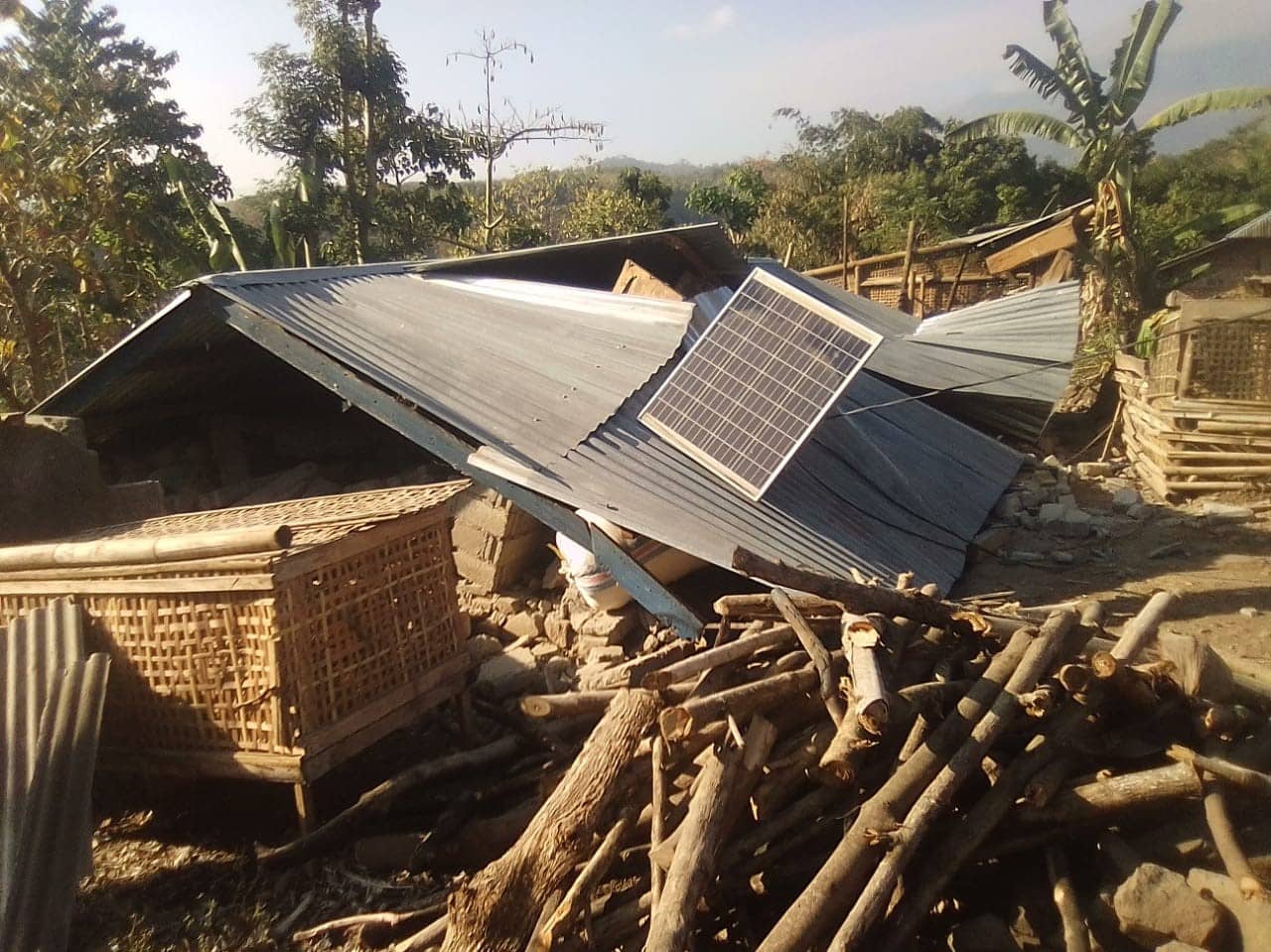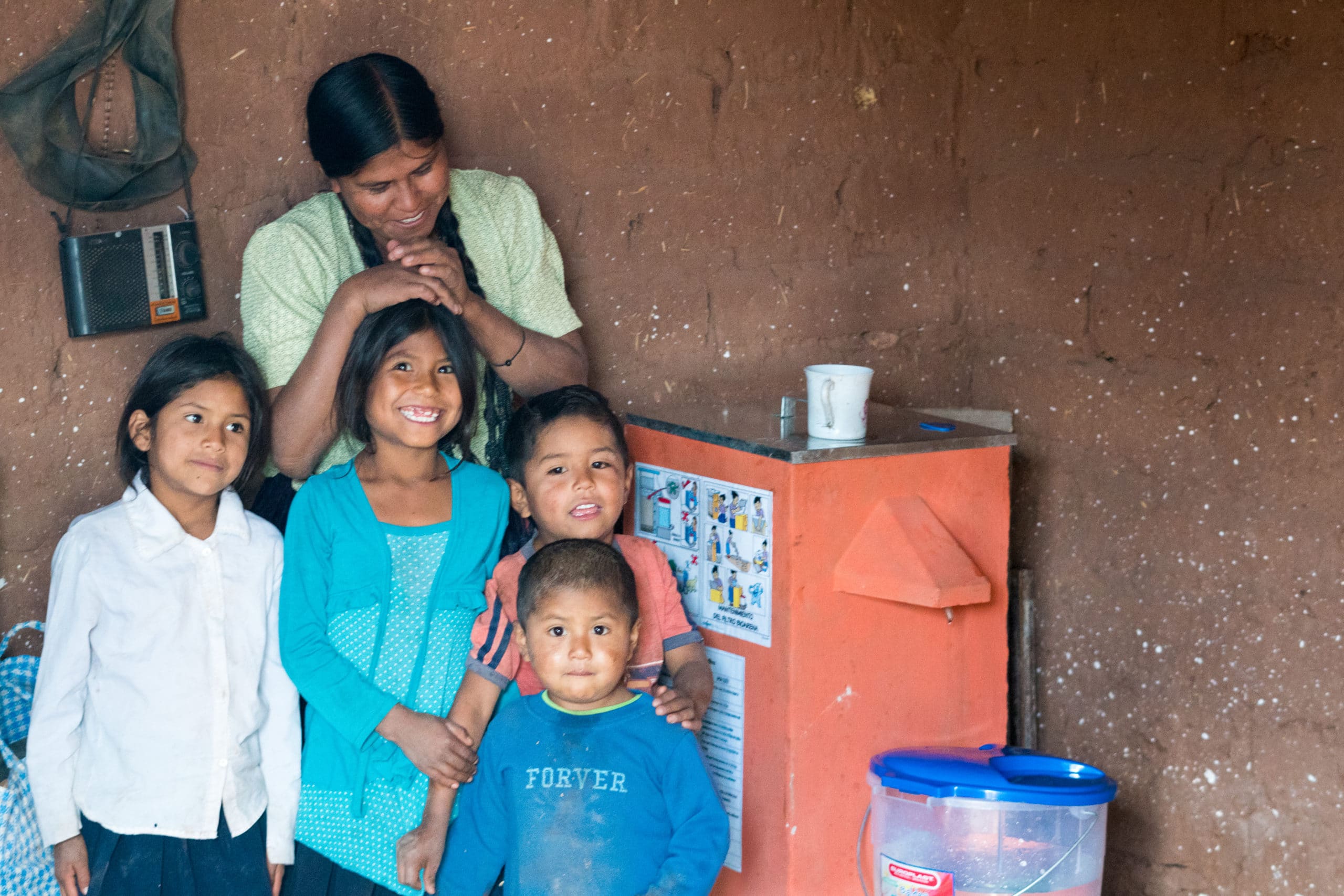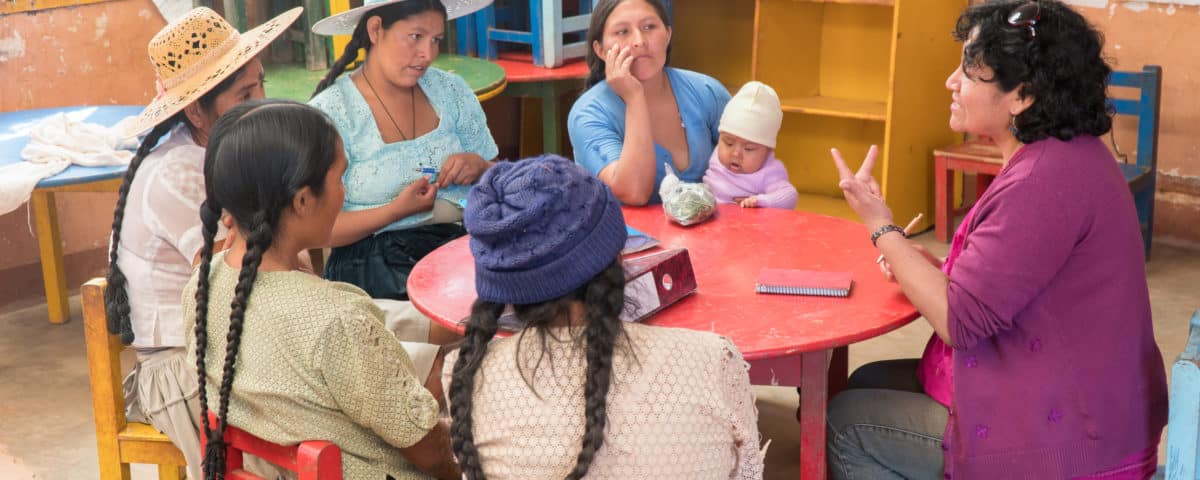The Grand Bargain agreement — set up in 2016 and endorsed by more than 30 major aid donors and organizations — supports the hiring of more local and national responders as part of the commitment toward the localization of emergency aid work. The World Bank and a number of arms of the United Nations are partners in the initiative — but there has been some discontent around the progress.
Some donors still find it hard to localize aid work.
“Unfortunately, a lot of times with USAID, they’re looking for expats to be the chief of party or the manager of a program,” revealed Kate Schecter, president and chief executive officer of World Neighbors. In a previous part of her career, this was an issue of debate between Schecter’s organization and the United States Agency for International Development.
Similarly, Angeline Tirogene, senior program associate in World Neighbors’ Haiti office — and Haitian herself — echoed that while the country does need some assistance, that doesn’t always mean in the form of external expertise.
“I would say that Haiti doesn’t need a bunch of other people to come down to do the job or [tell Haitians] what they need to do to help their country. [Haitians] need to work together and do it — and to do it themselves,” she offered.
World Neighbors only employs local staff to run their programs, which mainly involve training and educating communities to find lasting solutions to issues of poverty. Schecter and Tirogene explain the benefits and opportunities of hiring locally — such as having local staff on the ground during disaster responses — and why other organizations should follow suit.
“It’s not really funding humanitarian aid; it’s funding the possibility of a disaster happening and being better prepared for it. I think that’s the smart way to do assistance.”
— Kate Schecter, president and chief executive officer of World Neighbors
Longer term assistance
On average, World Neighbors stay between eight to 10 years in country working on a project. Having local people work together for this length of time builds strong relationships and bonds between staff, Schecter explained.
“There’s a feeling of connection to each other that you don’t always have in a large organization,” she said. “When expats go to these countries, they’re not their own countries. They’re not going to stay there. I think local people are committed to local places. They have their families there; they have much more of a tie to their own country. And so, they’re going to be that much more attached to that place.”
Local expertise
Local professionals have contextual and cultural knowledge of the region and are able to speak the local language, which are key assets for development work.
“It’s always more effective when people speak the dialects of these very, very remote and rural communities,” Schecter said. “When you speak the language, you are hearing things that you are not supposed to be hearing. And you communicate so much better,” she added.
Tirogene added that with local staff, “you know your country better and you know better what your country [needs]. So, you can share your experience and ideas with the leader of the organization, so they can design better projects.”
“I think local people are committed to local places. They have their families there; they have much more of a tie to their own country.”
— Kate Schecter, president and chief executive officer of World Neighbors
It’s important that organizations don’t overlook well-experienced local professionals.
“A lot of the [local] people that we hire for programs have a lot of expertise in agronomy and community health and all these different areas that we’re working [in],” Schecter said.
Collaboration with local governments
Employing local people brings greater opportunity for collaboration with local governments, which is crucial for the sustainability and longevity of programs.
“We have staff who are from the countries [we’re working in] and have good relationships with both the communities where we’re working, but also with national governments, so that there’s a plan for how this will be sustained,” Schecter said.
“We can be the catalyst for change, but ultimately if we want to scale up, we’re going to need the support of the local and national governments,” she continued.
In the end, World Neighbors wants national and local governments to take over these initiatives. “Many of these countries are supposed to have state-sponsored health care or education, but the state is just not there. So, we might help a community to get started with a clinic, but then look to the local government to staff,” Schecter continued.
Locals become the implementers
Hiring local staff brings new skills and social advantages, Tirogene said. Once successful programs have been implemented within local communities, these newly skilled people take their experience and offer their knowledge to other communities within the country. They become the teachers and trainers, continuing to expand and advance the impact of programs.
“In many cases they become the consultants, and we walk away, and they become the teachers,” Schecter said. “In fact, we have that situation right now in Guatemala, where we worked with some communities … and now they’re the trainers for a whole new area that we’re working in,” she revealed.
“People feel empowered, they feel respected, they feel motivated to take on these issues and to address them the way they think is best — and not the way a development consultant tells them to.”
— Kate Schecter, president and chief executive officer of World Neighbors
Self-empowered
A key outcome of successful programs the employ locally is not necessarily about the technical skills gained, but the realization that they are able to transform their own lives, Schecter said.
By taking this approach and enabling communities to help themselves, “people feel empowered, they feel respected, they feel motivated to take on these issues and to address them the way they think is best — and not the way a development consultant tells them to,” Schecter added.
Tirogene supported this and echoed that, “[Haitians] need to work together, and to stay [within the country], and to try to help themselves.”
Retain talent in country
A large problem in developing countries is that educated and skilled people end up migrating and leaving, Schecter explained.
“Once people get that kind of an education and those degrees, they leave their country. They’re now more employable in the United States or in Europe,” she said.
For example, “there’s very little opportunity in Port-au-Prince… parts of the city are just very, very poor. So, you can understand why young people would want to leave. And yet the only way Haiti’s going to get back on its feet is if it improves its economy and makes more opportunity for people in the country,” Schecter continued.
“In hiring local people, we’re modeling what we think our staff should do as well. So they’re learning a lot about transparency, financial literacy, leadership skills, management skills, and many of our staff go on to have leadership positions within the country that they’re in,” she said.
However, Tirogene raised that organizations often pay local staff less than the staff they bring in from other countries. Even employed Haitians are trying to migrate to countries where they will earn more. “All of the educated people, they are leaving the country because they don’t make enough money to live,” Tirogene said.
Organizations need to ensure they are paying local staff fair and decent salaries, she advised.
Local women supporting local women
It’s also important to ensure that local hiring is equal and benefits populations across the board, not just a select few. Schecter is pushing to employ more local women, for example.
UNISDR is one of a handful of U.N. agencies to achieve a 50 percent or greater proportion of female staff. Devex spoke with the head of UNISDR, Robert Glasser, who has been pivotal in achieving this gender balance, for his tips on moving the needle on gender parity.
“In Latin America, I have insisted that we have more women working on staff because we’re working with women in these communities,” she said.
“Yes, men can teach a lot of things, but there are certain things the women are going to just be more receptive to if there’s at least one woman in the group who’s a staff member,” Schecter explained.
“[If] it’s very male-dominated, it can be difficult, sometimes, to get them to find a woman that is going to be comfortable working with an all-male group,” she explained. Organizations need to make a conscious effort to hire local women and support them in their roles as much as possible.
Preparedness in disaster response
Although World Neighbors is not primarily a humanitarian or disaster response organization, many of the organization’s projects are located in countries vulnerable to natural hazards, such as Haiti and Nepal. Subsequently, World Neighbors has been on the ground and provided support during disasters, including Hurricane Matthew in Haiti.
Following Hurricane Matthew, World Neighbors sent community members to assess the damage and determine immediate needs, as well as a longer term strategy, Schecter explained. “Working with them, we came up with a recovery plan, which we then set in motion using the disaster funds that we were able to raise,” she said.
Local people are much more adept to know what is needed on the ground, as well as where to source materials, and how to formulate realistic plans. Having staff already on the ground in disaster-prone areas is a great asset for preparedness. Local personnel also have friends and contacts to utilize, and know other local NGOs working within the same space.
“It is difficult to jump in and start hiring [local people],” Schecter explained. “It’s much better to have a small staff there who would know who to turn to in an emergency situation.”
The difficulty with non-local or expat staff is that, “if there is a really bad disaster, they’re going to get out,” leaving local communities to deal with the aftermath of disasters without assistance or leadership, Schecter explained. If local staff are prepared and equipped to respond, they will be present when disasters occur.
“It’s not really funding humanitarian aid; it’s funding the possibility of a disaster happening and being better prepared for it. I think that’s the smart way to do assistance,” Schecter said.




